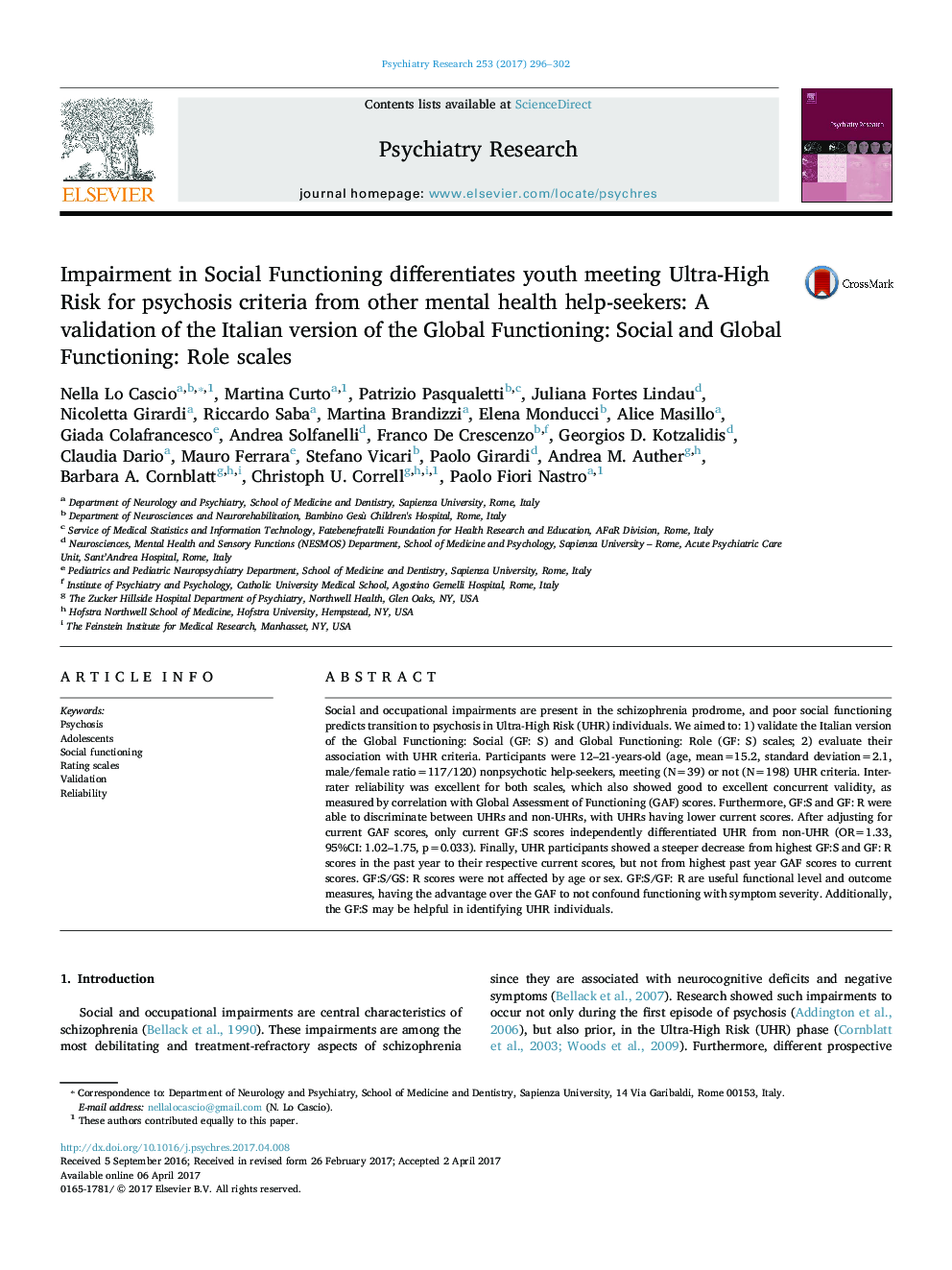| Article ID | Journal | Published Year | Pages | File Type |
|---|---|---|---|---|
| 4933307 | Psychiatry Research | 2017 | 7 Pages |
Abstract
Social and occupational impairments are present in the schizophrenia prodrome, and poor social functioning predicts transition to psychosis in Ultra-High Risk (UHR) individuals. We aimed to: 1) validate the Italian version of the Global Functioning: Social (GF: S) and Global Functioning: Role (GF: S) scales; 2) evaluate their association with UHR criteria. Participants were 12-21-years-old (age, mean=15.2, standard deviation=2.1, male/female ratio=117/120) nonpsychotic help-seekers, meeting (N=39) or not (N=198) UHR criteria. Inter-rater reliability was excellent for both scales, which also showed good to excellent concurrent validity, as measured by correlation with Global Assessment of Functioning (GAF) scores. Furthermore, GF:S and GF: R were able to discriminate between UHRs and non-UHRs, with UHRs having lower current scores. After adjusting for current GAF scores, only current GF:S scores independently differentiated UHR from non-UHR (OR=1.33, 95%CI: 1.02-1.75, p=0.033). Finally, UHR participants showed a steeper decrease from highest GF:S and GF: R scores in the past year to their respective current scores, but not from highest past year GAF scores to current scores. GF:S/GS: R scores were not affected by age or sex. GF:S/GF: R are useful functional level and outcome measures, having the advantage over the GAF to not confound functioning with symptom severity. Additionally, the GF:S may be helpful in identifying UHR individuals.
Related Topics
Life Sciences
Neuroscience
Biological Psychiatry
Authors
Nella Lo Cascio, Martina Curto, Patrizio Pasqualetti, Juliana Fortes Lindau, Nicoletta Girardi, Riccardo Saba, Martina Brandizzi, Elena Monducci, Alice Masillo, Giada Colafrancesco, Andrea Solfanelli, Franco De Crescenzo, Georgios D. Kotzalidis,
